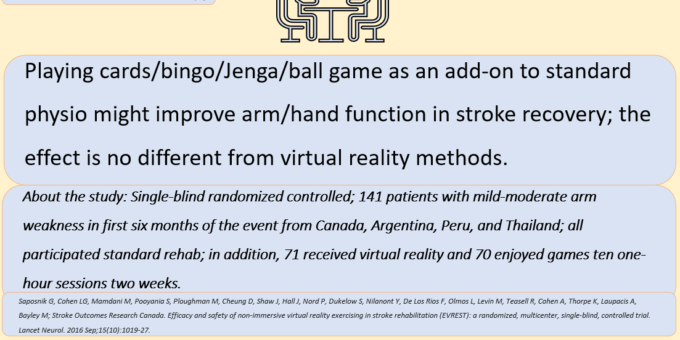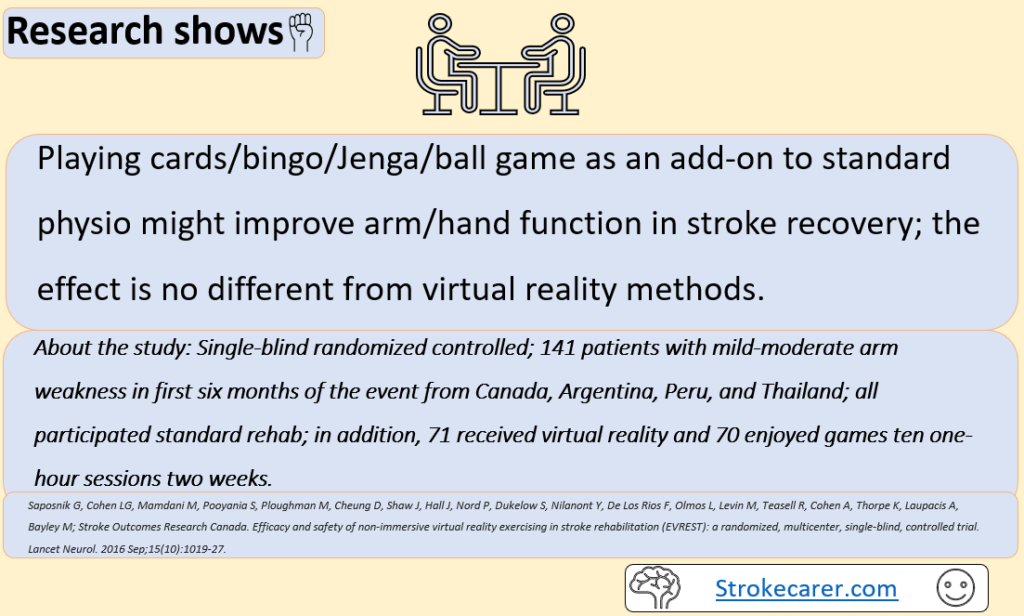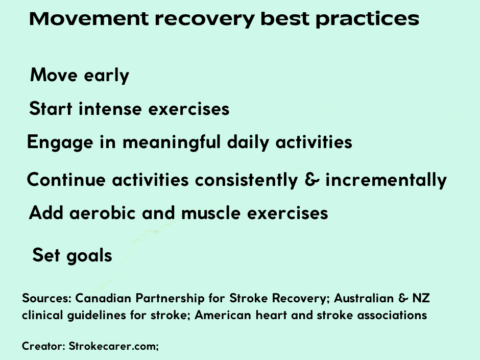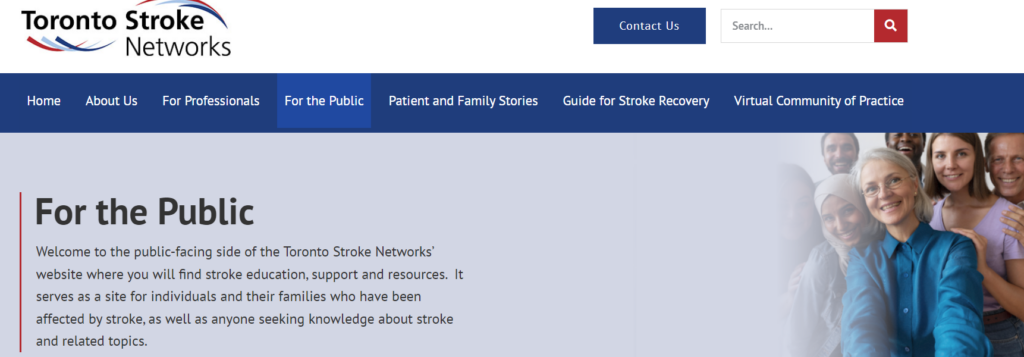
This is great news!
Playing cards, dominos, bingo, Jenga, and ball games will help to regain arm and hand recovery.
There is another important finding here; its gains are similar to the gains from virtual reality games. In other words, if you live in low-resourced settings it does not really matter. Still, you can achieve similar improvement.
It is also great news for those living in low-middle income countries.
Read about: “Six rules to recover movements after stroke”
About the study:
The researchers1 included 141 aged 18-85 patients who experienced their first stroke within six months; they had mild-moderate severity of arm/hand weakness and from Canada, Thailand, Argentina, and Peru. All received standard physio for four weeks. Of them, they randomly assigned 71 patients to virtual reality games while the rest engaged in recreational games such as playing cards, dominos, Jenga, or ball games. The virtual reality games employed Nintendo wii tech. All were instructed to sit and use the affected arm.
How long?
The study lasted two weeks – ten one-hour sessions. The virtual reality games were based on Nintendo wii technology and it was able to monitor hand, arm, wrist, and arm movements via a computer screen.
Who assesed?
A trained person who was not aware of who participated in which type of game or activity assessed the participants’ arm and hand function level both at the beginning and at the end.
What they found?
They found the arm/hand function improvement did not differ significantly in both groups in all centers.

Read about: How to regain arm and hand movements after stroke
Reference:
- Saposnik G, Cohen LG, Mamdani M, Pooyania S, Ploughman M, Cheung D, Shaw J, Hall J, Nord P, Dukelow S, Nilanont Y, De Los Rios F, Olmos L, Levin M, Teasell R, Cohen A, Thorpe K, Laupacis A, Bayley M; Stroke Outcomes Research Canada. Efficacy and safety of non-immersive virtual reality exercising in stroke rehabilitation (EVREST): a randomized, multicenter, single-blind, controlled trial. Lancet Neurol. 2016 Sep;15(10):1019-27; http://sorcan.ca/wp-content/uploads/EVREST-Multicenter_Lancet-Neurology.pdf





